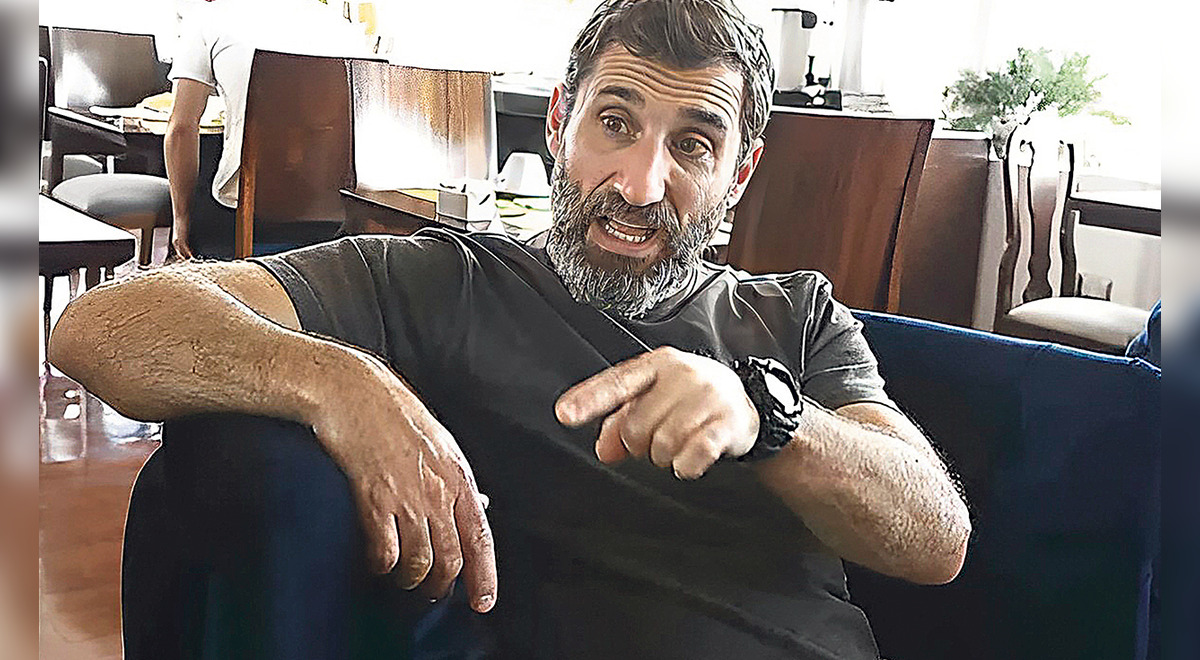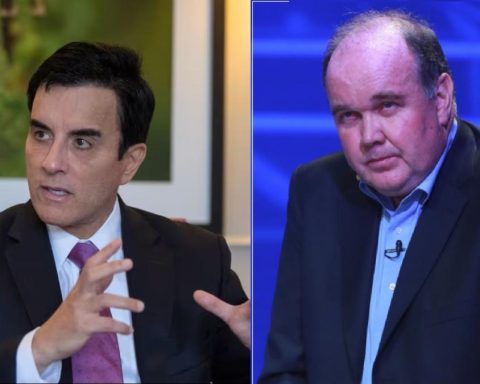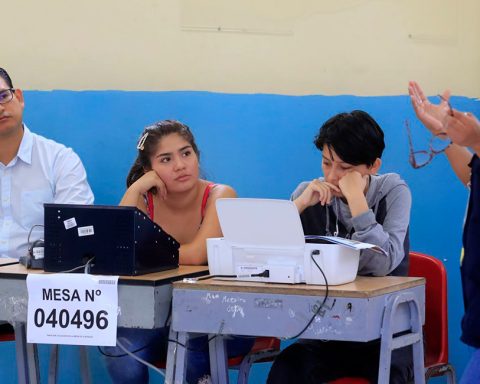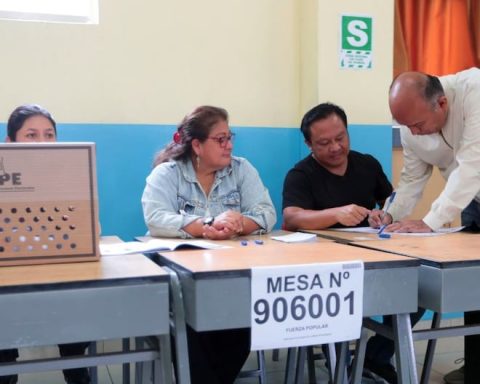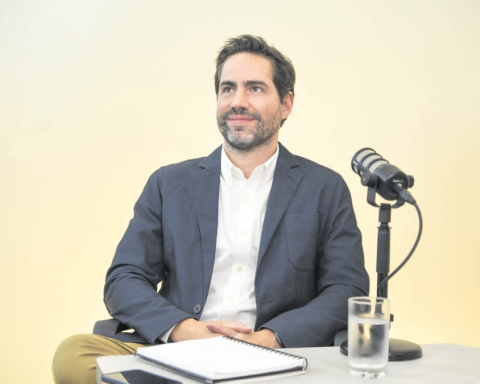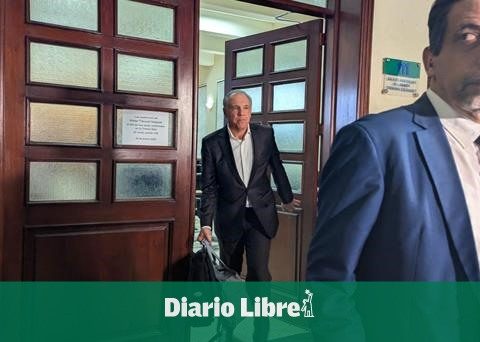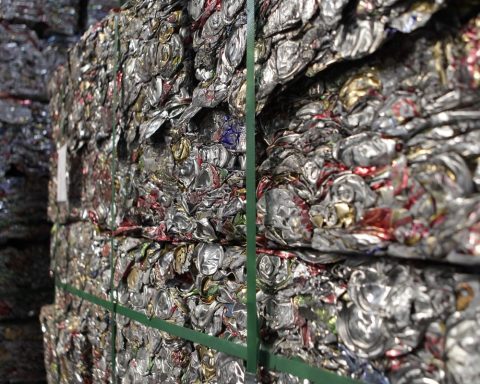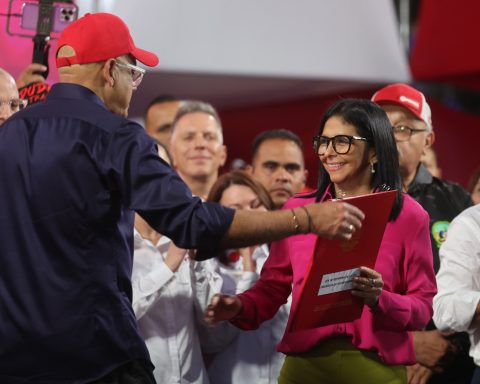British journalist Simeon Tegel, a contributor to the influential US newspaper The Washington Post, points out that there are historical problems that are being noticed from abroad and not so much among Peruvians themselves.
British journalist Simeon Tegel, a contributor to the influential US newspaper The Washington Post, believes that the foreign press warns that in the Peruvian crisis there are “substantive issues that underlie” such as inequality, discrimination and Lima-centrism. He believes that the “new elections cannot be postponed.”
How does the foreign press view this crisis in Peru?
With concern and dismay. We are seeing the country increasingly divided and sinking into this crisis, which at this moment does not seem to have an obvious way out. There are also several elements that are appreciated and emphasized from the outside.
And not from within?
There are media like La República that see them and others that don’t.
What elements are they?
This crisis has been triggered by the vacancy of Pedro Castillo, but the underlying issues drag on for centuries: inequality, discrimination, those issues, and Lima’s centrism. Important decisions about Puno, Cajamarca or elsewhere are made in Lima by people who do not know the jungle or sierra well or despise them. Those historical issues and corruption, which is systemic here and complicates everything, are seen from the outside. Another important issue is the government’s response to the protests. Boluarte is the constitutional president and there are violent activists, but the government seems incapable of distinguishing between the spectrum of tactics and demands of the protesters, and we listen to that terrifying discourse. The Government must listen and look for interlocutors. The protesters have no leadership, but who can they be? The governors, the Church, the universities…? The problem is that the politicians, the parties and the congressmen are not involved in it.
With six presidents in six years, what does this instability tell us about Peru?
That their political system is unworkable. That system of balance of powers and hybrid presidential-parliamentary model has not worked. The parties almost do not exist, they are vehicles of personal caudillismo. There are party owners linked to economic interests, sometimes very obscure, who handpick candidates, there are no primaries. We see this Congress and the previous ones: getting worse. It is difficult to imagine a Congress with its back to the country than the current one.
Do you see a country with a similar case?
I have not seen political collapse like this. Hard to find comparisons.
How was the election of Castillo, his government and his fall perceived from abroad?
The choice, with surprise. It was obvious that he was not going to be a good president: he came out with everything in the campaign…, without interest in finding out, studying policies, the institutional and legal framework, that was confirmed in the presidency. When he fell, it was an announced political death. The coup was idiocy out of desperation before the Prosecutor’s Office and being disconnected from reality. He was opposed to the free press and did not read newspapers, he did not know more than what some whispered to him.
If Boluarte is constitutional president, how do you explain her rejection so broad?
There are several factors. There is that pocket of voters who believed in Castillo and see her as a usurper. But she has made some very ill-advised decisions that undermine her legitimacy. Talking about the dum dum bullets in Bolivia and that protesters have killed each other has no basis. The “Puno is not Peru” thing was very unfortunate. Above all, there is repression: no democracy can allow violent actors to take over airports, destroy property or attack police officers, but the State’s response must be proportional, not shoot everyone, even a doctor who was helping.
He says that corruption is a key factor. Why?
Because it has destroyed the confidence of many citizens in democracy, institutions, governments, it is fuel for discontent, and because it means that the State cannot implement effective policies to address social problems. If everything is rotten, any policy will not work because the resources disappear and the people who manage them are not the right ones due to cronyism instead of meritocracy.
Castillo has signs of corruption and in these protests his followers advocate for him. How is that explained?
I think that he showed himself to be corrupt and that the demands change little by little and I don’t hear much “Castillo come back” anymore. I think the protesters or the vast majority understand that this is impossible and perhaps more than before they understand that Castillo betrayed the poor. The issue is looking ahead. Castillo has already left and the issue is what Peruvians want to do with this Congress, with this president.
What possible exit do you see?
New elections is something that cannot be postponed; It is necessary to pacify the country. That is essential, but that is a patch, nothing more, to lower the temperature at this time. In the long term, deep reforms to the political system are required and make politics representative and elected politicians continue to answer to the voters, instead of turning their backs on them as they do now. We also require reforms so that the benefits of economic growth are better shared, because there are many parts with tremendous poverty.
Should the new elections be this year or will the situation last until 2024?
As soon as possible. I think that many people who are upset with the government and even more so with Congress would demonstrate peacefully, but they don’t because of the repression and the violent groups. Perhaps in a few weeks or months they will and we will see massive mobilizations in Lima. If it occurs, it would be very difficult for the Government and Congress to resist this demand for new elections.
What future do you see for Boluarte?
Little future. I think he leaves the presidency and ends up politically. Perhaps the biggest question for her is if they put her in jail, if they prosecute her for human rights violations or not, but even if she avoids a legal process, I think that, wherever she goes, in the country she will be disowned. ❖
